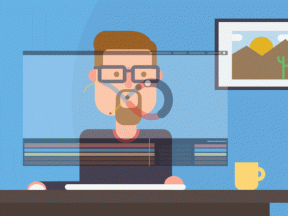As smartphones are watching us and how it threatens
Technologies / / December 19, 2019
Smartphones are aware of their host too much and affect their lives much more than you can imagine.
As smartphones are watching us
Daily using their smartphones, we are generating a huge flow of data. Tracking and analyzing our behavior, gadgets create digital profiles of users with many detailsFTC Recommends Congress Require the Data Broker Industry to be More Transparent and Give Consumers Greater Control Over Their Personal Information our personal lives.
And this is not a simple account of our activities: Digital profiles are usedWarning over illegal trade in people's information companies in their objectives and, as a rule, without our knowledge. Collecting information during the application or in the background, a lot of complex algorithms analyze all, including the location, search history, communication in social networks, as well as finance and biometric data.
What do they know about us
All this information can tell a lot. Each data type says about our interests, preferences and hobbies, on the basis of which it is possible to draw conclusions about education man, religion, political views, sexual orientation and gender identity, as well as social connections and health.
Different types of data are combined to build a comprehensive profile, and there are already companiesFirms Are Buying, Sharing Your Online Info. What Can You Do About It?Specializing in the sale of this type of information.
Such profiles may contain sensitive information such as ethnicity, income level, marital status and family composition.
A recent study found7 in 10 Smartphone Apps Share Your Data with Third-Party ServicesThat seven out of ten mobile application sends the collected information to third parties. The data from different programs complement each other. In fact, the smartphone can be turned into a device for shadowing.
How to use the data and how it threatens
Such information is very popular among companies and is needed primarily for providing targeted advertising and personalized services. However, this is not limited to its application.
Imposing loans
Even ordinary targeted advertising based on data from smartphones, can have a real impact on our lives and well-being. People in financial difficulty may receiveGoogle was right to get tough on payday loan ads - and now, others should follow suit advertising microloans to find and take advantage of their services to get into debt.
discrimination on various grounds
Targeted advertising also provokes discrimination and prejudice against corporate people. Race is not yet clearly stated in the Facebook profile, but the user's ethnic identity can be determined based on the material and liked pages, with whom he interacted. The study shows a non-profit organization ProPublicaFacebook Lets Advertisers Exclude Users by RaceThat you can hide ads for rent or jobs for people certain ethnic or age group.
Such an approach is different from traditional advertising in print media, on radio and television, which has no exclusive targeting. Anyone can buy a newspaper, even if there is a target audience of the publication.
The internet can be completely eliminated human access to certain information, and he will never know about it.
credit check
Data in social networks can also serve to determine the creditworthiness. As indicators used posts analysis of the language and even the analysis of the solvency of his friends. This, in turn, can affect the level of taxes, interest rates, the ability to buy a home and career prospectsDiscredited: How Employment Credit Checks Keep Qualified Workers Out Of A Job.
The same risk occurs when we use the application for payments and purchases. In China, the government announcedBig data meets Big Brother as China moves to rate its citizens plans to consolidate data on personal spending from official documents such as tax returns and fines for traffic violations. This initiative is already operating on a trial basis, and after full adoption will lead to the award of the social credit ratingChina's dystopian social credit system is a harbinger of the global age of the algorithm every citizen. But these ratings, in turn, will be used to assign privileges and fines at registration of credits and promotion.
All this is not a distant future, but a reality. Smartphones are effective devices for surveillance, and all who use them, are subject to this risk. In this case, it is impossible to identify all collected and used smartphone data to understand the scale of the impact. What we know, it can only be the beginning.


